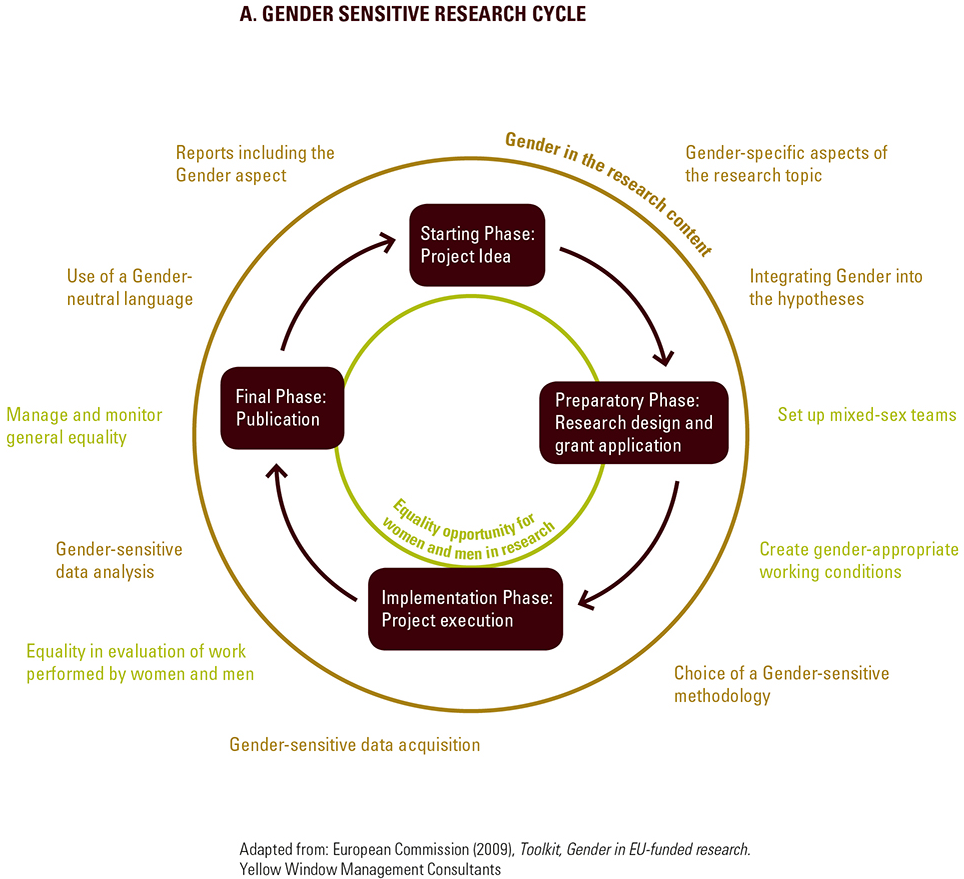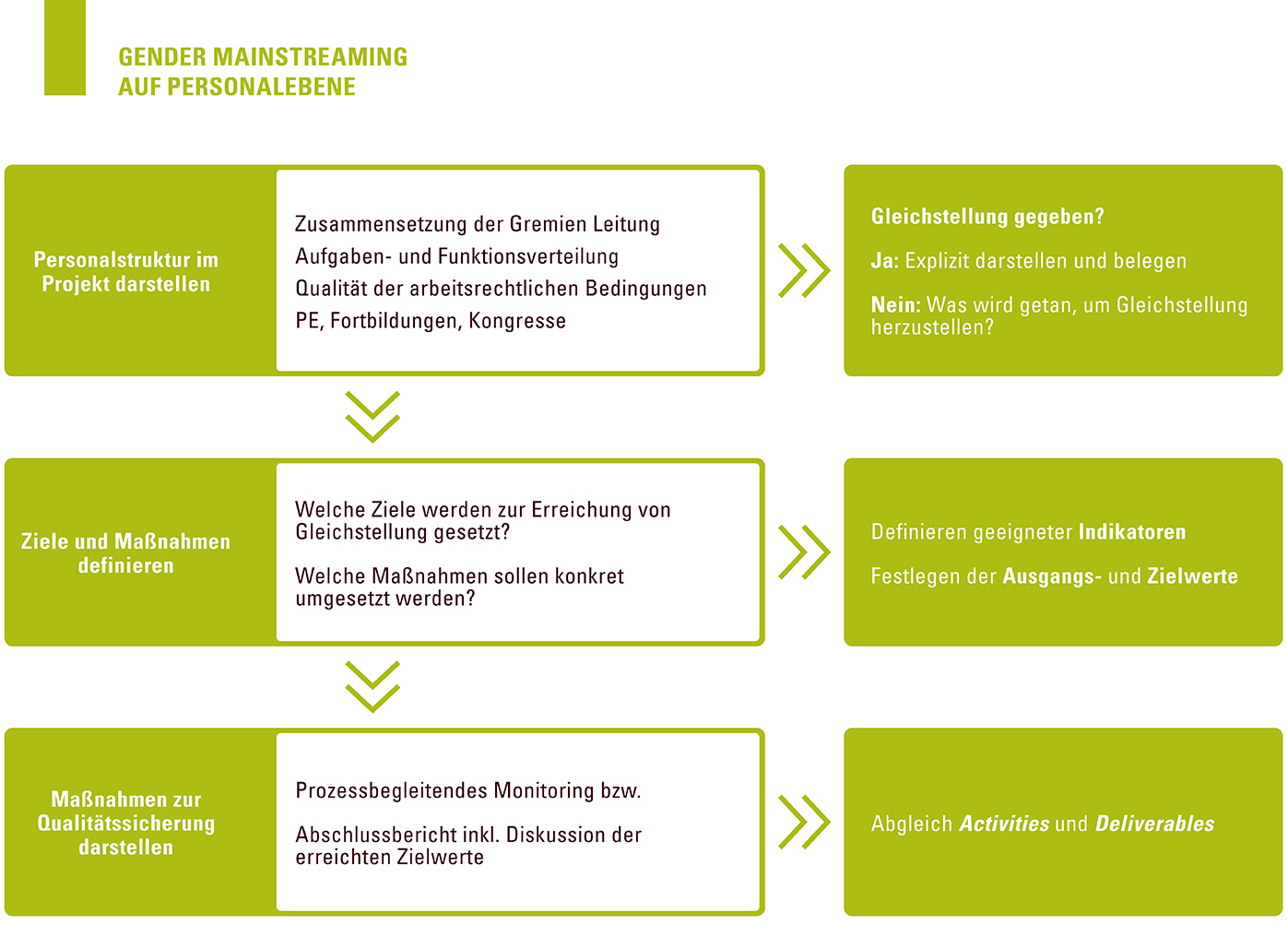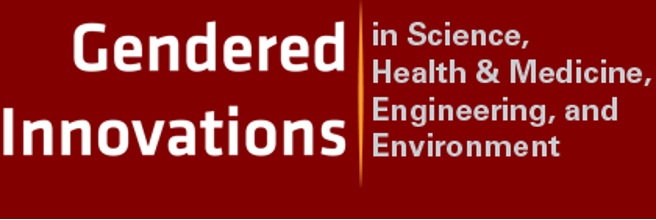Gender Monitoring Tool
Sex-/Gendersensitive Medicine and Equality-relevant Contents in Grant Applications
What is the gender monitoring tool (GMT)?
- The gender monitoring tool (GMT) is an instrument that permits the compulsory sex-/gender-specific and equality-relevant standards to be incorporated into grant applications quickly, in a structured manner and in agreement with the European quality criteria.
- The GMT is structured as a building block and is based on the legal regulations, current research on equality and the guidelines of the European Commission; it is to be supplemented with or adapted for the specific research content of your project.
Modules: Overview
|
|
University-specific equality work
|
Project-specific equality
|
|
Staff level
|
Gender equlity und equal opportunities at the Medical University of Innsbruck – measures of all employees
[pdf-datei]
|
Gender equality and equal opportunities in the project team
[pdf-datei]
|
|
Content level
|
Gender medical research and teaching at the Medical University of Innsbruck
[pdf-datei]
|
Consideration of the sex/gender category in project content
[pdf-datei]
|
|
Accompanying evaluation
|
|
Evaluation – securing results
[pdf-datei]
|
|
|
Exemplary example [pdf-datei]
|
The Gendered Innovationsproject provides practical methods for analysing gender in science and engineering that have been developed in international collaborations.
- Heidari S, Babor TF, De Castro P, Tort S, Curno M. Sex and Gender Equity in Research: rationale for the SAGER guidelines and recommended use. Research Integrity and Peer Review. 2016;1(1):2. In: https://researchintegrityjournal.biomedcentral.com/articles/10.1186/s41073-016-0007-6
- European Commission, Horizon 2020, Work Programme 2016-2017, 16. Science with and for Society, European Commission Decision C (2015)6776 of 13 October 2015)
- EIGE (2015): Tender Specifications: Integrating Gender Equality into Research Performing Organisations RPO and university. Research, Practices and setting of on-line Tool on Gender Equality Plans¸ EIGE/2015/OPER/07
- European Union, Verordnung (EU) Nr. 282/2014 des Europäischen Parlaments und des Rates vom 11. März 2014 über das dritte Aktionsprogramm der Union im Bereich der Gesundheit (2014-2020); Amtsblatt der Europäischen Union, L86/1
- European Union, Council Decision of 3 December 2013, establishing the specific programme implementing Horizon 2020 – the Framework Programe for Research and Innovation (2014-2020); Oficial Journal of the European Union, L347/965
- Krizsan, A.; Lombardo, E. (2013): the quality of gender equality policies: A discursive approach. European Journal of Women’s Studies 20(1), 77-92
- Mühlenbruck, B.; Jochimsen, M.A. (2013): Only wholsale reform will bring equality. Nature, Vol 495, 7 March 2013, 40-42
- Nature, Ediorials (2012): Nature’s sexism. The editors of this publication need to improve how we reflect women’s contributions to science. For this, we must inject an extra loop into our thinking. Nature, Vol 491, 22 November 2012, 495
- The Lancet, Editorial (2011): Taking sex into account in medicine. www.thelancet.com, vol 378, November 26, 1826
- European Commission (2009): Toolkit. Gender in EU-funded research. Yellow Window Management Consultants, ISBN 978-92-79-11290-4







